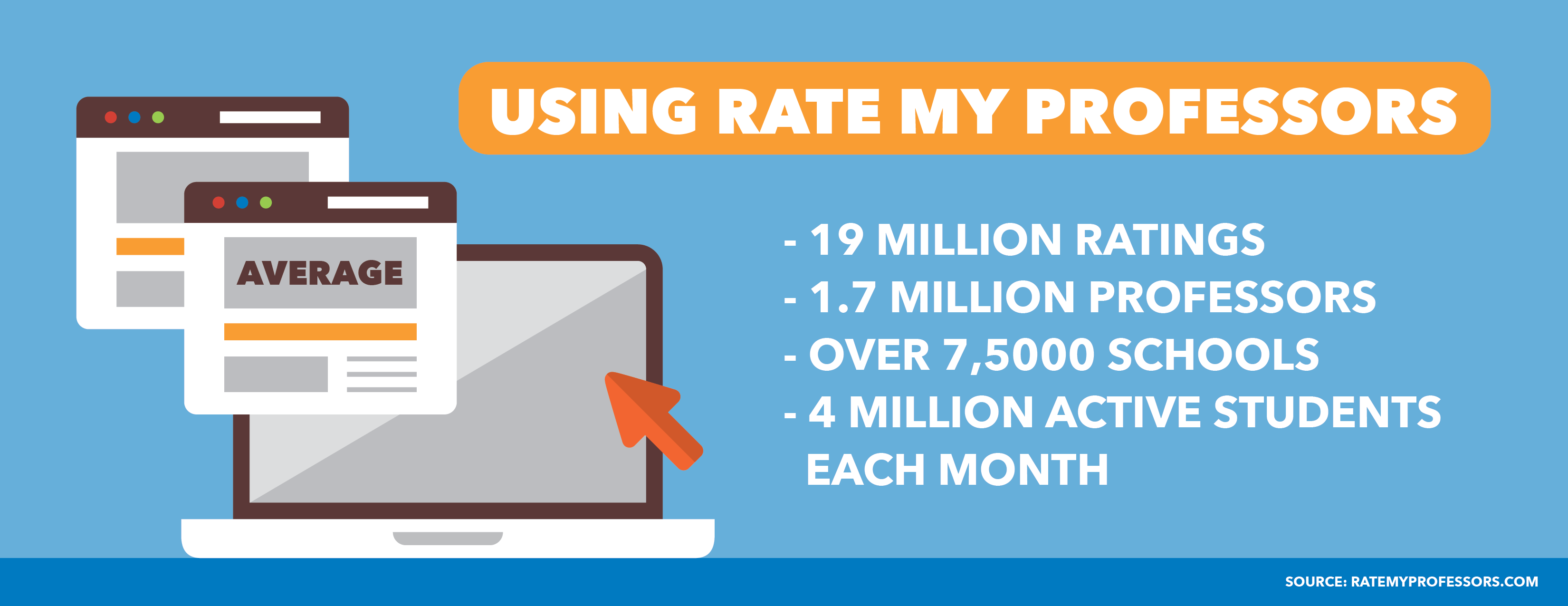Two of the most frequently asked questions students have during registration are “Which professor should I take this class from?” and “How do I find out which of these professors is the right fit for me?”
I know that’s what I was thinking.
During the first semester of my freshman year, my adviser picked out all of my classes. That was fine because they were all general education classes, and I didn’t have any college friends who could make suggestions about Dixie State professors. Then second semester rolled around, and I had more room for choices. Someone suggested using ratemyprofessors.com to find the right professors for my classes.
It wasn’t a life-changing suggestion, but it was pretty nifty. Basically, Rate My Professors is a review website where you can read or leave your own reviews about professors at your school. All you have to do to read others’ reviews is click “Find a Professor” or “Find a School” and type in what school and which professor you’re looking for.
Admittedly, one problem with using the website is that people aren’t required to leave a review, and those who do only leave them for professors they either really liked or really hated. But you can run into that same problem with any review website.
Plus, if we’re all being honest, isn’t it more concerning to have a really bad professor than it is to have one who’s average? Most “average” professors are decent at teaching and just didn’t leave an impression on you one way or the other, while a bad professor is an experience to actively avoid and a good professor is an experience we hope to have. Rate My Professors is just a tool to help you weed out the bad options and look for the better ones. I leave reviews for all my professors so it balances out the results.
Fair warning, some professors are either double-listed or haven’t been listed at all if no one’s reviewed them yet. Take, for example, the fact that Professor Ott from the math department is listed separately as “Kathryn Ott” and “Kathie Ott.” And not all negative reviews should be taken to heart. For instance, on the “Kathryn Ott” listing, several reviews mention that she has a tendency to go off-topic and doesn’t explain things well.
I took her Math 1030 class, and while she does mention things from her life during class, it’s almost always related to what we’re learning. Also, if there’s anything you don’t understand in class, Ott will answer any questions you have, and she makes her office hours and willingness to help well known. And I suck at math, so I’d know if she wasn’t explaining it well enough for the casual student.
Rate My Professors is still a great website with good information, it just needs to be taken with a grain of salt. And I don’t want this advice to come off as a shameless plug because whether or not anyone uses the website doesn’t benefit me, and I don’t make any guarantees about its accuracy. That’s where common sense comes in.
If there are only a few bad reviews on an otherwise well-reviewed professor, you can probably ignore the bad reviews. And if you still aren’t sure, ask around. In fact, as difficult as it may be, asking around first and using Rate My Professors as a last line of defense is the smartest option; ask your adviser, a friend, or the stranger you overheard talking about the professor(s) you’re interested in. Use Rate My Professors as a backup for lack of people to ask or to double-check what you’ve already heard, not as a guaranteed method of choosing classes.
I’ve never had a bad professor, and I’ve used Rate My Professors each time I’m not sure who to choose. So, this information might be useful when registration for spring semester rolls around in a few months. Try it, and if you don’t like the results, you can always switch classes before the first week’s over, right?




